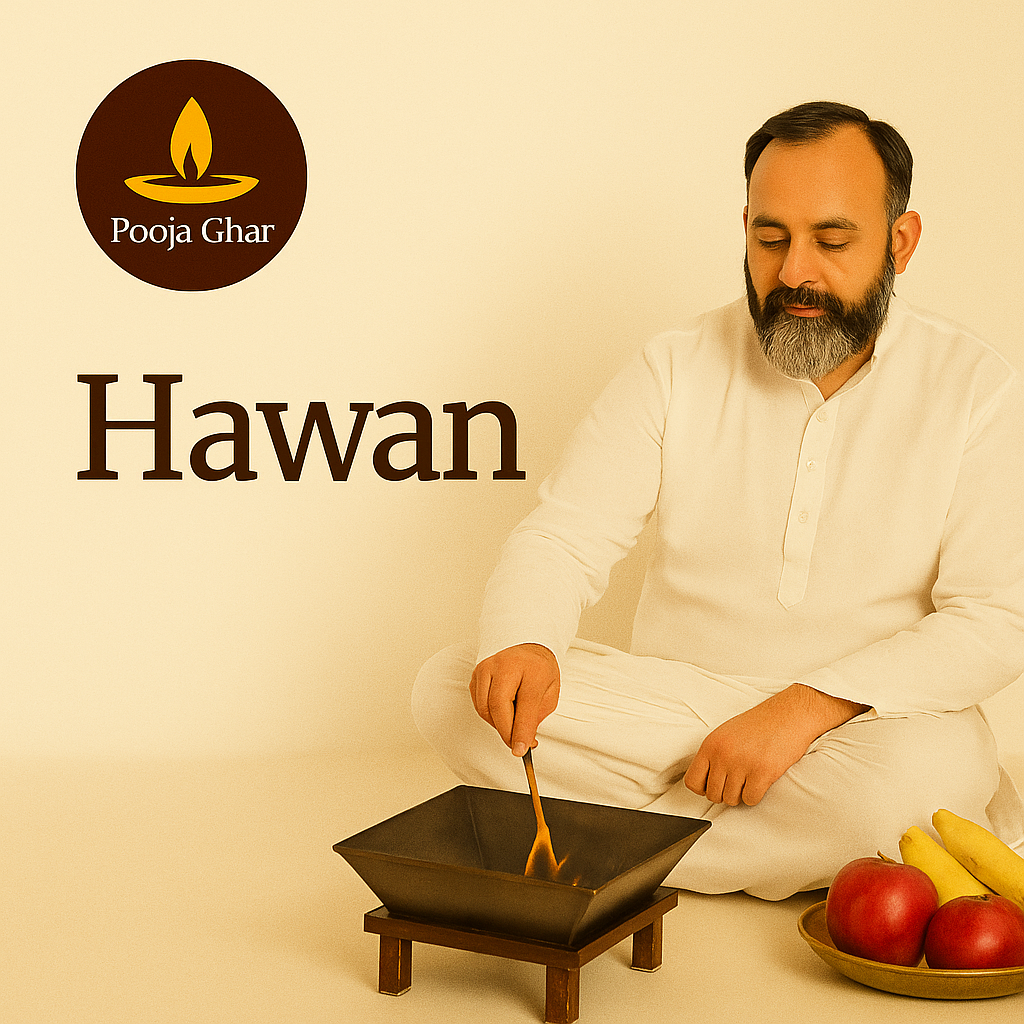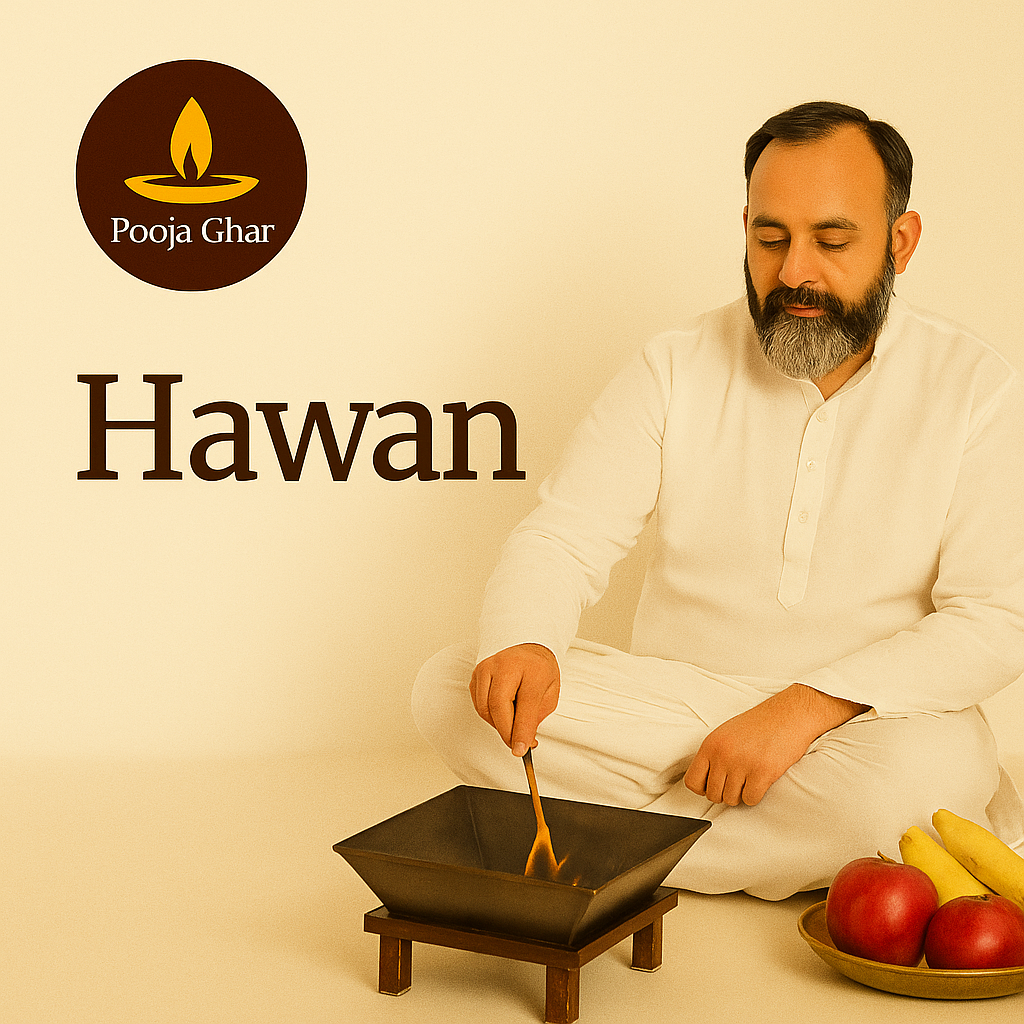Hawan
Hawan
Couldn't load pickup availability
Purification of surroundings and mind: The sacred fire and offerings made during Hawan purify the environment and the spiritual aura of the place. Invoking Divine Blessings: Hawans invoke various deities for health, prosperity, mental peace, and fulfillment of specific desires (like Graha Shanti, marriage, business success). Spiritual Protection: It forms a shield against negative energies and enhances positivity in homes or offices. Completion of Pooja: Traditionally, no major Pooja is considered complete without performing a Hawan at the end.
Duration : 45 mins
Samagri Required
Samagri Required
- Hawan Kund (fire altar)
- Dry mango wood sticks
- Pure ghee (clarified butter)
- Cow dung cakes (optional for tradition)
- Camphor (kapoor)
- Dhoop and incense sticks
- Rice grains (Akshat)
- Jaggery
- Barley grains (Yava)
- Havan Samagri Mix (special herbal mixture)
- Coconut pieces
- Dry fruits
- Red sandalwood powder
- Black sesame seeds
- Kalash (water vessel) and spoon
- Fresh flowers and garlands
- Sacred thread (yajnopavita)
- White cloth to cover altar
- Panchamrit (for offerings)
History
History
Hawan has deep roots in Vedic civilization — specifically mentioned in texts like the Rigveda and Yajurveda. In ancient India, sages performed Agnihotra and Yajnas daily to maintain cosmic order (Rta). Hawan rituals were integral to life events: births, marriages, house constructions, and even state matters like coronations. It evolved from elaborate public Yajnas to simplified domestic Hawans, making it accessible to households.
Share


